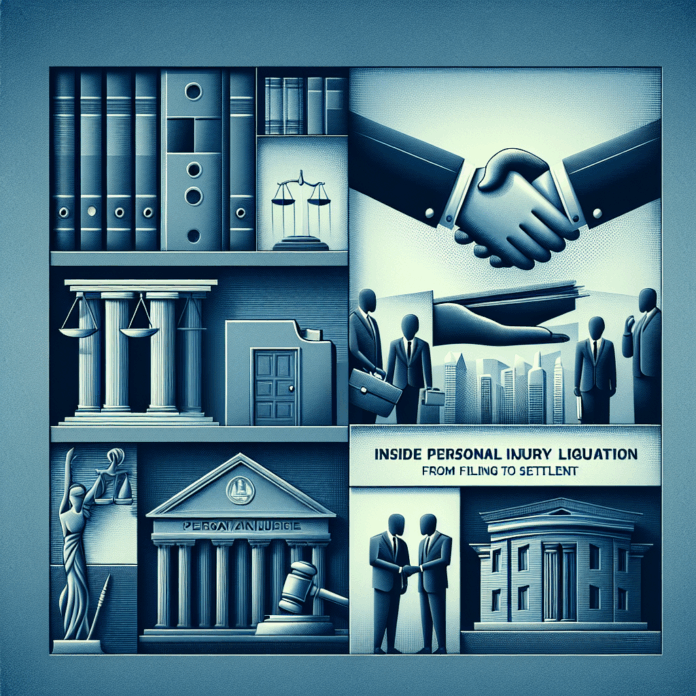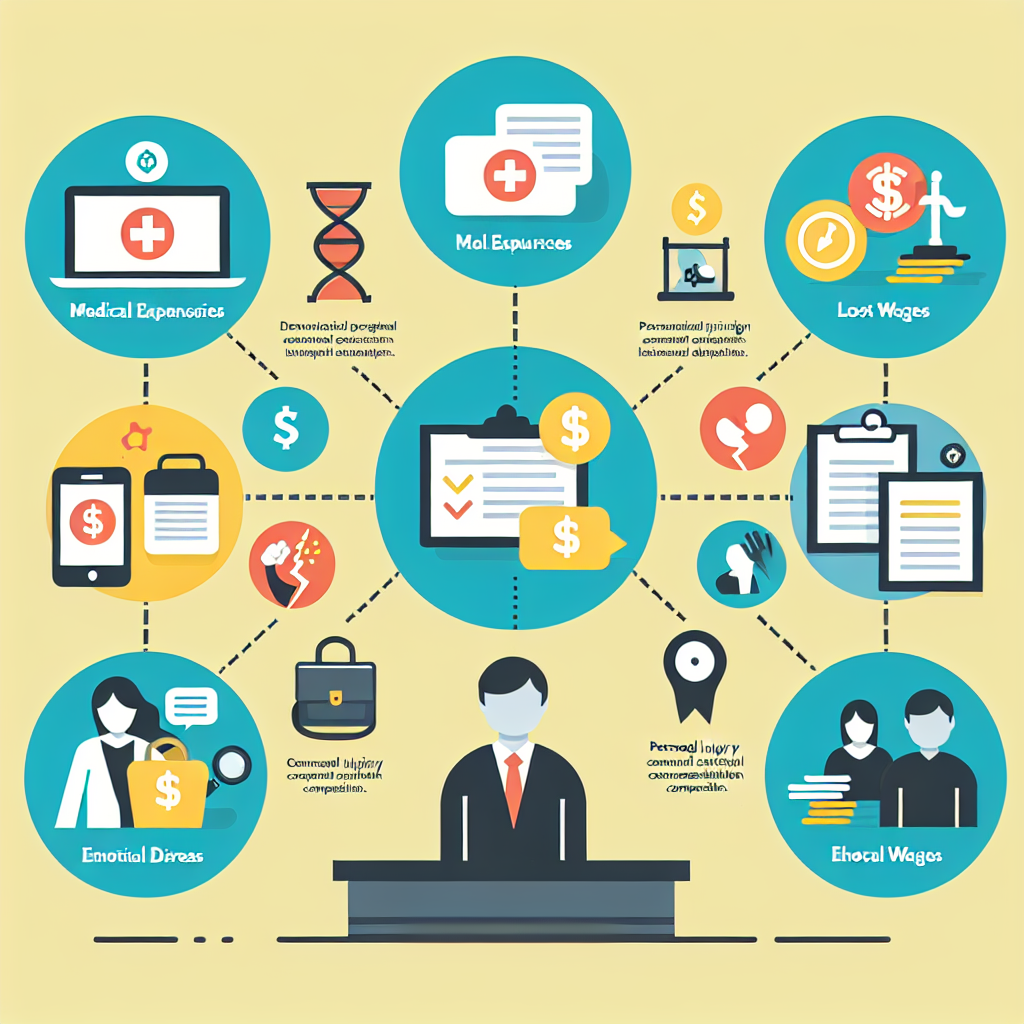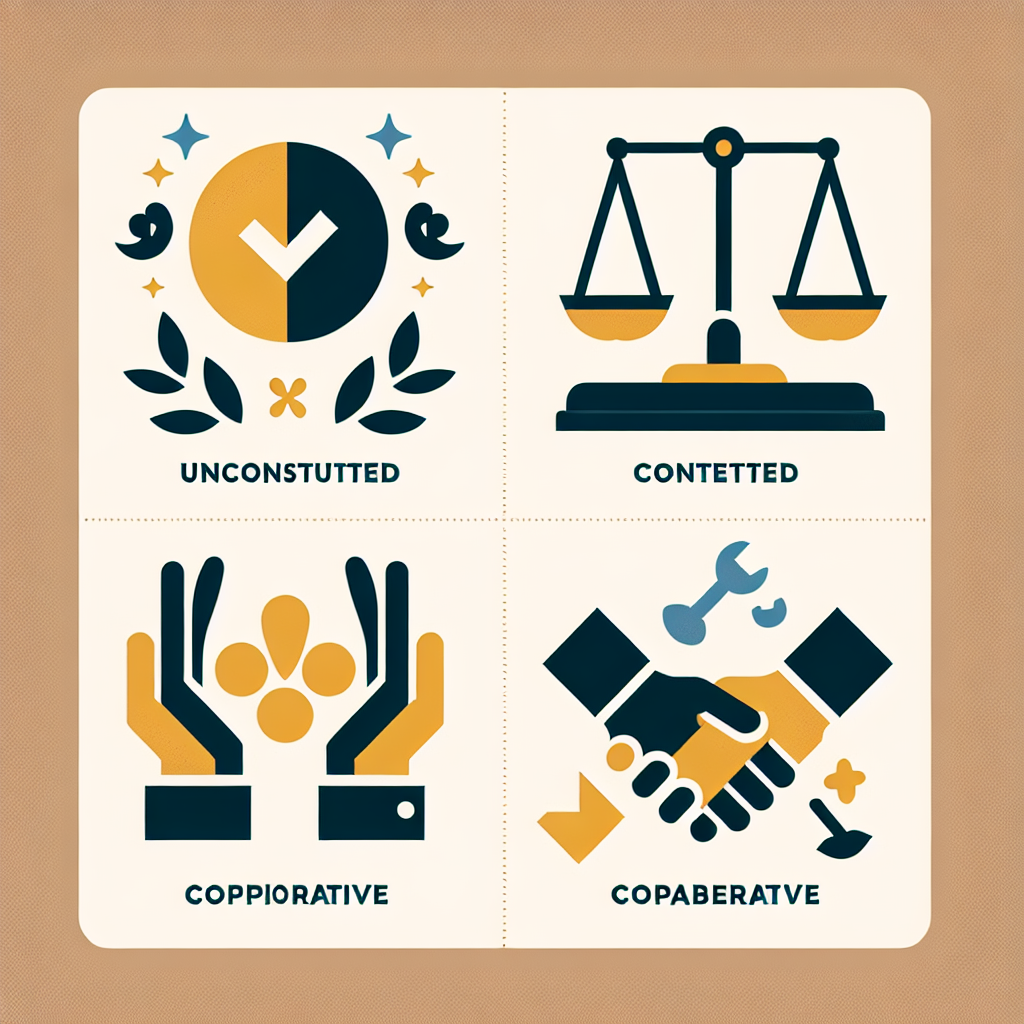Legal Playbook: Major Legal Issues Shaping Modern Sports
Regulatory Frameworks Governing Professional Sports
Did you know that the National Football League (NFL) generates over billion annually? Yet, behind this staggering figure lies a complex web of regulations that govern everything from player safety to broadcasting rights. These frameworks aren't just red tape; they shape the very fabric of how sports operate today.
Take the recent changes in college sports as an example. With the NCAA's new Name, Image, and Likeness (NIL) rules, student-athletes can now profit from their personal brand. This shift not only impacts recruitment strategies but also raises questions about equity and fairness across different sports and institutions.
The Role of Federal and State Regulations
In the United States, both federal and state laws play significant roles in regulating professional sports. Federal laws address issues like discrimination and labor relations through acts such as the Americans with Disabilities Act and the National Labor Relations Act. Meanwhile, state regulations can vary widely — some states have specific laws governing gambling while others focus on athlete agents or consumer protection.
It’s crucial for teams and organizations to stay updated on both federal and state legal landscapes to avoid costly missteps.
International Regulations: A Global Game
Think globally, act locally rings especially true in professional sports. As leagues expand internationally, they must navigate a myriad of regulations across different jurisdictions. For instance, FIFA has its own regulatory framework governing international soccer that includes strict financial fair play rules aimed at preventing clubs from spending beyond their means.
What happens when a player transfers between countries? Each nation has its own set of employment laws that impact contracts, work permits, and even tax obligations. Clubs must tread carefully to ensure compliance while maximizing their roster potential.
Player Safety Regulations: More Than Just Buzzwords
Player safety is no longer just a talking point; it’s a legal requirement. With lawsuits over concussions becoming more common, leagues like the NFL have had to implement stringent protocols regarding player health.
For example, the NFL’s Concussion Protocol mandates immediate removal from play for any player suspected of having a concussion — a move that not only protects athletes but also shields the league from potential lawsuits.
As these examples show, regulatory frameworks are not just bureaucratic hurdles; they are essential components that influence everything from how games are played to how teams negotiate contracts. The landscape is ever-evolving — keeping up with sports legal news is essential for anyone involved in professional athletics.
Did you know that the National Football League (NFL) generates over $12 billion annually? Yet, behind this staggering figure lies a complex web of regulations that govern everything from player safety to broadcasting rights. These frameworks aren't just red tape; they shape the very fabric of how sports operate today.
Take the recent changes in college sports as an example. With the NCAA's new Name, Image, and Likeness (NIL) rules, student-athletes can now profit from their personal brand. This shift not only impacts recruitment strategies but also raises questions about equity and fairness across different sports and institutions.
The Role of Federal and State Regulations
In the United States, both federal and state laws play significant roles in regulating professional sports. Federal laws address issues like discrimination and labor relations through acts such as the Americans with Disabilities Act and the National Labor Relations Act. Meanwhile, state regulations can vary widely — some states have specific laws governing gambling while others focus on athlete agents or consumer protection.
It’s crucial for teams and organizations to stay updated on both federal and state legal landscapes to avoid costly missteps.
International Regulations: A Global Game
Think globally, act locally rings especially true in professional sports. As leagues expand internationally, they must navigate a myriad of regulations across different jurisdictions. For instance, FIFA has its own regulatory framework governing international soccer that includes strict financial fair play rules aimed at preventing clubs from spending beyond their means.
What happens when a player transfers between countries? Each nation has its own set of employment laws that impact contracts, work permits, and even tax obligations. Clubs must tread carefully to ensure compliance while maximizing their roster potential.
Player Safety Regulations: More Than Just Buzzwords
Player safety is no longer just a talking point; it’s a legal requirement. With lawsuits over concussions becoming more common, leagues like the NFL have had to implement stringent protocols regarding player health.
For example, the NFL’s Concussion Protocol mandates immediate removal from play for any player suspected of having a concussion — a move that not only protects athletes but also shields the league from potential lawsuits.
As these examples show, regulatory frameworks are not just bureaucratic hurdles; they are essential components that influence everything from how games are played to how teams negotiate contracts. The landscape is ever-evolving — keeping up with sports legal news is essential for anyone involved in professional athletics.
Player Contracts and Labor Relations
Imagine a star quarterback, let’s call him Johnny Cannon, who just led his team to the Super Bowl. Now, picture him sitting at a negotiation table, armed with stats that would make any GM sweat. The stakes? His next contract could be worth hundreds of millions. But here’s the kicker: it’s not just about the money; it’s about the legal intricacies that shape every line of that contract.
In professional sports, player contracts are more than mere agreements; they’re complex documents laden with legal jargon that can make your head spin faster than a foul ball at a baseball game. These contracts dictate everything from salaries to endorsement deals and even how players can engage in social media. A misstep in understanding these terms can lead to costly disputes or even litigation.
The Collective Bargaining Agreement (CBA)
At the heart of player contracts is the Collective Bargaining Agreement (CBA), which serves as the blueprint for labor relations in sports leagues like the NFL and NBA. This legally binding document is negotiated between team owners and player unions, establishing rules on salaries, working conditions, and benefits. For instance, did you know that in 2021, NFL players secured a record billion in guaranteed money through their CBA? That’s no small feat!
However, CBAs aren’t set in stone; they evolve over time as new issues arise. Recently, mental health provisions have gained traction, reflecting a growing recognition of players’ well-being beyond physical injuries. This shift is crucial as it aligns with broader societal changes toward mental health awareness.
Contract Negotiation Pitfalls
Negotiating contracts isn’t just about haggling over numbers; it requires a keen understanding of legal implications. For example, rookie contracts often come with performance incentives that can be tricky to navigate. If Johnny Cannon doesn’t meet certain benchmarks—like touchdowns or passing yards—he might miss out on significant bonuses. And let’s not forget about clauses like morals or conduct detrimental to the team, which can lead to contract termination if he decides to hit up a nightclub instead of hitting the gym.
Important takeaway: Understanding contract nuances is vital for both players and agents to avoid pitfalls that could jeopardize careers.
Labor Disputes: When Negotiations Go South
Lockout—a term that sends shivers down every sports fan's spine. When negotiations between leagues and player unions break down, we face work stoppages that disrupt seasons and frustrate fans. The NBA experienced this firsthand in 2011 when a lockout lasted over four months due to disagreements over revenue sharing models.
But wait! There’s more! Labor disputes also highlight underlying issues like equity among players across different leagues or teams—think about how some athletes earn millions while others barely scrape by on minimum salaries despite similar workloads.
Imagine a star quarterback, let’s call him Johnny Cannon, who just led his team to the Super Bowl. Now, picture him sitting at a negotiation table, armed with stats that would make any GM sweat. The stakes? His next contract could be worth hundreds of millions. But here’s the kicker: it’s not just about the money; it’s about the legal intricacies that shape every line of that contract.
In professional sports, player contracts are more than mere agreements; they’re complex documents laden with legal jargon that can make your head spin faster than a foul ball at a baseball game. These contracts dictate everything from salaries to endorsement deals and even how players can engage in social media. A misstep in understanding these terms can lead to costly disputes or even litigation.
The Collective Bargaining Agreement (CBA)
At the heart of player contracts is the Collective Bargaining Agreement (CBA), which serves as the blueprint for labor relations in sports leagues like the NFL and NBA. This legally binding document is negotiated between team owners and player unions, establishing rules on salaries, working conditions, and benefits. For instance, did you know that in 2021, NFL players secured a record $1 billion in guaranteed money through their CBA? That’s no small feat!
However, CBAs aren’t set in stone; they evolve over time as new issues arise. Recently, mental health provisions have gained traction, reflecting a growing recognition of players’ well-being beyond physical injuries. This shift is crucial as it aligns with broader societal changes toward mental health awareness.
Contract Negotiation Pitfalls
Negotiating contracts isn’t just about haggling over numbers; it requires a keen understanding of legal implications. For example, rookie contracts often come with performance incentives that can be tricky to navigate. If Johnny Cannon doesn’t meet certain benchmarks—like touchdowns or passing yards—he might miss out on significant bonuses. And let’s not forget about clauses like morals or conduct detrimental to the team, which can lead to contract termination if he decides to hit up a nightclub instead of hitting the gym.
Important takeaway: Understanding contract nuances is vital for both players and agents to avoid pitfalls that could jeopardize careers.
Labor Disputes: When Negotiations Go South
Lockout—a term that sends shivers down every sports fan's spine. When negotiations between leagues and player unions break down, we face work stoppages that disrupt seasons and frustrate fans. The NBA experienced this firsthand in 2011 when a lockout lasted over four months due to disagreements over revenue sharing models.
But wait! There’s more! Labor disputes also highlight underlying issues like equity among players across different leagues or teams—think about how some athletes earn millions while others barely scrape by on minimum salaries despite similar workloads.
Intellectual Property Rights in Sports Branding
Ever heard that the value of sports branding can be worth more than the actual teams? Just look at the New York Yankees: their brand alone is estimated to be worth over billion. But what happens when someone tries to cash in on that brand without permission? Cue the legal drama.
In the world of sports, intellectual property (IP) rights are not just legal jargon; they’re the lifeblood of branding and merchandising. Athletes, teams, and leagues rely on their trademarks and copyrights to protect everything from logos to catchphrases. A single misstep in IP management can lead to financial losses that could rival a bad season.
Trademarking Team Names and Logos
Trademarking is essential for any sports organization looking to secure its identity. Think about it: when you see a swoosh or a big cat logo, you immediately associate it with certain values, emotions, or even memories of epic games. But trademarking isn’t just about securing a logo; it’s also about enforcing it against unauthorized use.
For instance, when a minor league team tried to use a similar logo as the Chicago Cubs, the Cubs didn’t just send a cease-and-desist letter; they went full throttle with legal action. Why? Because if they let one instance slide, they risk diluting their brand's power—an absolute no-no in sports branding.
Copyright Issues with Merchandise
Merchandising is where IP rights really flex their muscles. Teams often create unique designs for jerseys and other gear that embody their spirit. However, unauthorized vendors love to swoop in and create knock-offs—think cheap jerseys sold out of the back of a van at your local flea market.
Important takeaway: Protecting your merchandise through copyright isn’t just smart; it’s crucial for maintaining revenue streams.
But wait, you might say, isn’t this just business as usual? Not quite! In recent years, several high-profile lawsuits have emerged where athletes like LeBron James have fought against unauthorized merchandise bearing their likenesses. The courts have sided with these athletes more often than not—further solidifying their control over personal branding.
Fair Use vs. Infringement
Fair use is often touted as a get-out-of-jail-free card for creators wanting to use trademarked material without permission. But here’s the rub: fair use is murky territory at best! Take fan art or parody merchandise—while you might think it's harmless fun, teams can—and do—take action if they feel their brand is being misrepresented or diluted.
'So what's the bottom line?' You might ask. It's simple: understanding IP rights isn't just for lawyers in suits; it's vital for athletes and organizations alike who want to navigate this complex landscape successfully.
Ever heard that the value of sports branding can be worth more than the actual teams? Just look at the New York Yankees: their brand alone is estimated to be worth over $7 billion. But what happens when someone tries to cash in on that brand without permission? Cue the legal drama.
In the world of sports, intellectual property (IP) rights are not just legal jargon; they’re the lifeblood of branding and merchandising. Athletes, teams, and leagues rely on their trademarks and copyrights to protect everything from logos to catchphrases. A single misstep in IP management can lead to financial losses that could rival a bad season.
Trademarking Team Names and Logos
Trademarking is essential for any sports organization looking to secure its identity. Think about it: when you see a swoosh or a big cat logo, you immediately associate it with certain values, emotions, or even memories of epic games. But trademarking isn’t just about securing a logo; it’s also about enforcing it against unauthorized use.
For instance, when a minor league team tried to use a similar logo as the Chicago Cubs, the Cubs didn’t just send a cease-and-desist letter; they went full throttle with legal action. Why? Because if they let one instance slide, they risk diluting their brand's power—an absolute no-no in sports branding.
Copyright Issues with Merchandise
Merchandising is where IP rights really flex their muscles. Teams often create unique designs for jerseys and other gear that embody their spirit. However, unauthorized vendors love to swoop in and create knock-offs—think cheap jerseys sold out of the back of a van at your local flea market.
Important takeaway: Protecting your merchandise through copyright isn’t just smart; it’s crucial for maintaining revenue streams.
But wait, you might say, isn’t this just business as usual? Not quite! In recent years, several high-profile lawsuits have emerged where athletes like LeBron James have fought against unauthorized merchandise bearing their likenesses. The courts have sided with these athletes more often than not—further solidifying their control over personal branding.
Fair Use vs. Infringement
Fair use is often touted as a get-out-of-jail-free card for creators wanting to use trademarked material without permission. But here’s the rub: fair use is murky territory at best! Take fan art or parody merchandise—while you might think it's harmless fun, teams can—and do—take action if they feel their brand is being misrepresented or diluted.
'So what's the bottom line?' You might ask. It's simple: understanding IP rights isn't just for lawyers in suits; it's vital for athletes and organizations alike who want to navigate this complex landscape successfully.
Liability Issues and Risk Management in Athletics
Imagine a star athlete, let’s call her Mia Thunder, who just signed a multi-million dollar contract. One fateful day during practice, she slips on a wet spot and tears her ACL. Now, not only is Mia facing surgery and rehab, but the team is also staring down the barrel of potential lawsuits. This scenario isn’t just hypothetical; it’s a reality many organizations grapple with when it comes to liability issues in sports.
Liability in athletics extends beyond just player injuries; it encompasses everything from fan safety to negligent hiring practices. With sports being a contact-heavy industry, the stakes are high. According to the National Center for Catastrophic Sports Injury Research, there were over 100 reported catastrophic injuries in high school sports in 2020 alone. These statistics underscore the importance of robust risk management strategies.
Understanding Liability Types
There are three main types of liability that teams and organizations need to consider:
- 1. Negligence: This occurs when an organization fails to act with reasonable care, leading to injury or harm.
- 2. Strict Liability: In some cases, teams can be held liable for injuries regardless of fault — think defective equipment.
- 3. Vicarious Liability: This holds employers responsible for the actions of their employees while performing their duties.
Each type presents unique challenges and requires tailored risk management approaches.
Proactive Risk Management Strategies
Risk management isn’t just a legal buzzword; it’s essential for protecting athletes and organizations alike. Here are some proactive strategies:
- 1. Implement Comprehensive Safety Protocols: Regularly inspect facilities and equipment to ensure they meet safety standards.
- 2. Train Staff on Emergency Response: Equip coaches and staff with first-aid training so they can respond swiftly to injuries.
- 3. Use Waivers Wisely: While waivers can't eliminate liability, they can help mitigate risks by ensuring participants understand potential dangers.
Imagine a star athlete, let’s call her Mia Thunder, who just signed a multi-million dollar contract. One fateful day during practice, she slips on a wet spot and tears her ACL. Now, not only is Mia facing surgery and rehab, but the team is also staring down the barrel of potential lawsuits. This scenario isn’t just hypothetical; it’s a reality many organizations grapple with when it comes to liability issues in sports.
Liability in athletics extends beyond just player injuries; it encompasses everything from fan safety to negligent hiring practices. With sports being a contact-heavy industry, the stakes are high. According to the National Center for Catastrophic Sports Injury Research, there were over 100 reported catastrophic injuries in high school sports in 2020 alone. These statistics underscore the importance of robust risk management strategies.
Understanding Liability Types
There are three main types of liability that teams and organizations need to consider:
- 1. Negligence: This occurs when an organization fails to act with reasonable care, leading to injury or harm.
- 2. Strict Liability: In some cases, teams can be held liable for injuries regardless of fault — think defective equipment.
- 3. Vicarious Liability: This holds employers responsible for the actions of their employees while performing their duties.
Each type presents unique challenges and requires tailored risk management approaches.
Proactive Risk Management Strategies
Risk management isn’t just a legal buzzword; it’s essential for protecting athletes and organizations alike. Here are some proactive strategies:
- 1. Implement Comprehensive Safety Protocols: Regularly inspect facilities and equipment to ensure they meet safety standards.
- 2. Train Staff on Emergency Response: Equip coaches and staff with first-aid training so they can respond swiftly to injuries.
- 3. Use Waivers Wisely: While waivers can't eliminate liability, they can help mitigate risks by ensuring participants understand potential dangers.
The Intersection of Technology and Sports Law
As the world of sports races into the digital age, it turns out that technology is not just a spectator; it's a key player in shaping sports law. With over 80% of sports organizations now using data analytics to enhance performance and fan engagement, the legal ramifications are as vast as they are complex.
Take the rise of wearable technology, for instance. Devices that track player performance and health metrics can provide invaluable insights, but they also raise questions about data privacy and ownership. If a player’s biometric data is collected during practice, who owns that information? The team? The player? Or the tech company that makes the device? These are not just hypothetical dilemmas; they’re real issues that could end up in court.
Data Privacy Concerns
With great data comes great responsibility—or at least it should. The use of tracking technologies in sports has exploded, but many teams fail to consider how to handle this data ethically and legally. For example, in 2022, a scandal erupted when it was revealed that a major league team was sharing players' health data with third parties without proper consent. This led to lawsuits and significant reputational damage.
Important takeaway: Organizations must implement robust data governance policies to protect athletes' personal information.
The Impact of Social Media
Social media has transformed how fans interact with athletes and teams—but it’s also a minefield of legal issues. From defamation claims to intellectual property disputes over viral memes, the potential for legal entanglements is ever-present. Consider an athlete who posts something controversial on Twitter; if it damages their brand or leads to fan backlash, can the team hold them accountable for breach of contract?
Athletes need to be aware that their online presence can have real-world consequences, says a sports attorney specializing in social media law. What might seem like harmless banter could lead to significant legal repercussions.
Emerging Technologies: AI and Blockchain
Artificial Intelligence (AI) is revolutionizing game strategies and fan experiences, but it also raises concerns around fairness and transparency. If AI algorithms are used for player evaluations or game officiating, how do we ensure these systems are free from bias? In 2021, an NBA team faced scrutiny when its AI-driven scouting reports were accused of favoring certain demographics over others.
Blockchain technology offers promising solutions for ticket sales and merchandise authenticity, yet its integration into sports law remains uncharted territory. Legal frameworks have yet to catch up with these innovations—leaving teams vulnerable to fraud or intellectual property violations.
As the world of sports races into the digital age, it turns out that technology is not just a spectator; it's a key player in shaping sports law. With over 80% of sports organizations now using data analytics to enhance performance and fan engagement, the legal ramifications are as vast as they are complex.
Take the rise of wearable technology, for instance. Devices that track player performance and health metrics can provide invaluable insights, but they also raise questions about data privacy and ownership. If a player’s biometric data is collected during practice, who owns that information? The team? The player? Or the tech company that makes the device? These are not just hypothetical dilemmas; they’re real issues that could end up in court.
Data Privacy Concerns
With great data comes great responsibility—or at least it should. The use of tracking technologies in sports has exploded, but many teams fail to consider how to handle this data ethically and legally. For example, in 2022, a scandal erupted when it was revealed that a major league team was sharing players' health data with third parties without proper consent. This led to lawsuits and significant reputational damage.
Important takeaway: Organizations must implement robust data governance policies to protect athletes' personal information.
The Impact of Social Media
Social media has transformed how fans interact with athletes and teams—but it’s also a minefield of legal issues. From defamation claims to intellectual property disputes over viral memes, the potential for legal entanglements is ever-present. Consider an athlete who posts something controversial on Twitter; if it damages their brand or leads to fan backlash, can the team hold them accountable for breach of contract?
Athletes need to be aware that their online presence can have real-world consequences, says a sports attorney specializing in social media law. What might seem like harmless banter could lead to significant legal repercussions.
Emerging Technologies: AI and Blockchain
Artificial Intelligence (AI) is revolutionizing game strategies and fan experiences, but it also raises concerns around fairness and transparency. If AI algorithms are used for player evaluations or game officiating, how do we ensure these systems are free from bias? In 2021, an NBA team faced scrutiny when its AI-driven scouting reports were accused of favoring certain demographics over others.
Blockchain technology offers promising solutions for ticket sales and merchandise authenticity, yet its integration into sports law remains uncharted territory. Legal frameworks have yet to catch up with these innovations—leaving teams vulnerable to fraud or intellectual property violations.
Diversity, Equity, and Inclusion Initiatives in Sports Law
It’s a staggering fact that only 20% of leadership positions in major sports leagues are held by women. This glaring disparity highlights a critical need for diversity, equity, and inclusion (DEI) initiatives within sports law. As the landscape of professional athletics evolves, so too must the legal frameworks that govern them.
Take the case of the NBA's Basketball is for Everyone campaign. This initiative not only promotes inclusivity but also seeks to address systemic barriers that have historically marginalized certain groups in sports. The legal implications here are profound — from ensuring equitable hiring practices to preventing discrimination based on gender or ethnicity.
The Legal Framework Supporting DEI
Legislation like Title IX has been instrumental in promoting gender equity in educational institutions, including collegiate athletics. However, the application of such laws in professional leagues is often murky. Many organizations are now proactively revisiting their policies to ensure compliance and foster an inclusive environment.
The Rooney Rule is another example worth noting. Originally implemented in the NFL, it mandates that teams interview minority candidates for head coaching and senior football operation jobs. While it’s a step in the right direction, critics argue it often results in token interviews rather than genuine consideration.
In 2022, only three out of thirty NFL teams had minority head coaches.
Challenges and Critiques of DEI Initiatives
Diversity washing is a term gaining traction as organizations tout their DEI efforts without implementing meaningful change. This performative approach can lead to backlash and skepticism among fans and employees alike.
Look at Major League Baseball (MLB), which has faced criticism for its lack of diversity among players and executives despite various initiatives aimed at improving representation. The disparity between intention and impact raises questions about accountability within these organizations.
- Establishing clear metrics for success
- Ensuring diverse representation on decision-making boards
- Implementing mandatory training programs on implicit bias
The Future of DEI in Sports Law
As we look ahead, it’s clear that DEI initiatives will become even more integral to sports law. With growing public scrutiny and social media accountability, leagues must adapt or risk losing both talent and fan support.
It’s a staggering fact that only 20% of leadership positions in major sports leagues are held by women. This glaring disparity highlights a critical need for diversity, equity, and inclusion (DEI) initiatives within sports law. As the landscape of professional athletics evolves, so too must the legal frameworks that govern them.
Take the case of the NBA's Basketball is for Everyone campaign. This initiative not only promotes inclusivity but also seeks to address systemic barriers that have historically marginalized certain groups in sports. The legal implications here are profound — from ensuring equitable hiring practices to preventing discrimination based on gender or ethnicity.
The Legal Framework Supporting DEI
Legislation like Title IX has been instrumental in promoting gender equity in educational institutions, including collegiate athletics. However, the application of such laws in professional leagues is often murky. Many organizations are now proactively revisiting their policies to ensure compliance and foster an inclusive environment.
The Rooney Rule is another example worth noting. Originally implemented in the NFL, it mandates that teams interview minority candidates for head coaching and senior football operation jobs. While it’s a step in the right direction, critics argue it often results in token interviews rather than genuine consideration.
In 2022, only three out of thirty NFL teams had minority head coaches.
Challenges and Critiques of DEI Initiatives
Diversity washing is a term gaining traction as organizations tout their DEI efforts without implementing meaningful change. This performative approach can lead to backlash and skepticism among fans and employees alike.
Look at Major League Baseball (MLB), which has faced criticism for its lack of diversity among players and executives despite various initiatives aimed at improving representation. The disparity between intention and impact raises questions about accountability within these organizations.
- Establishing clear metrics for success
- Ensuring diverse representation on decision-making boards
- Implementing mandatory training programs on implicit bias
The Future of DEI in Sports Law
As we look ahead, it’s clear that DEI initiatives will become even more integral to sports law. With growing public scrutiny and social media accountability, leagues must adapt or risk losing both talent and fan support.
Emerging Legal Challenges from Social Media Influence
Social media has morphed from a playful platform for sharing cat memes into a battleground for reputations and legal disputes. In fact, a staggering 70% of athletes have faced some form of backlash due to their social media activity, making it clear that the stakes are high.
Consider the case of a well-known NBA player who posted a controversial opinion on Twitter, sparking outrage among fans and sponsors alike. The fallout? A significant loss in endorsements and a stern warning from his team about future conduct. This isn’t just an isolated incident; it’s becoming the norm as athletes navigate the complex interplay between their online personas and professional obligations.
The Legal Minefield of Defamation
Defamation claims are on the rise as athletes become more vocal online. A single tweet can lead to lawsuits that not only drain bank accounts but also tarnish reputations. What’s more alarming is how quickly these cases can escalate; one poorly-worded post could turn into a multi-million-dollar legal battle faster than you can say retweet.
Athletes need to think before they tweet — the legal consequences can be severe.
Intellectual Property: The Meme Dilemma
Fair use may sound like an easy escape route for creators wanting to use trademarked material, but it’s often a slippery slope. Take that viral meme featuring an athlete's likeness — while it might seem harmless, teams can and do take action if they feel their brand is being misrepresented or diluted.
In 2020 alone, over 1,000 trademark infringement cases were filed by sports entities, highlighting how serious these issues have become. Athletes must be savvy about how their images are used online; otherwise, they risk losing control over their personal brand.
Cancel Culture and Contractual Obligations
Cancel culture isn’t just a trend; it’s reshaping how teams approach contracts with players. If an athlete makes headlines for all the wrong reasons online, teams may find themselves grappling with breach of contract claims or even termination clauses that were never intended to be activated.
Social media has morphed from a playful platform for sharing cat memes into a battleground for reputations and legal disputes. In fact, a staggering 70% of athletes have faced some form of backlash due to their social media activity, making it clear that the stakes are high.
Consider the case of a well-known NBA player who posted a controversial opinion on Twitter, sparking outrage among fans and sponsors alike. The fallout? A significant loss in endorsements and a stern warning from his team about future conduct. This isn’t just an isolated incident; it’s becoming the norm as athletes navigate the complex interplay between their online personas and professional obligations.
The Legal Minefield of Defamation
Defamation claims are on the rise as athletes become more vocal online. A single tweet can lead to lawsuits that not only drain bank accounts but also tarnish reputations. What’s more alarming is how quickly these cases can escalate; one poorly-worded post could turn into a multi-million-dollar legal battle faster than you can say retweet.
Athletes need to think before they tweet — the legal consequences can be severe.
Intellectual Property: The Meme Dilemma
Fair use may sound like an easy escape route for creators wanting to use trademarked material, but it’s often a slippery slope. Take that viral meme featuring an athlete's likeness — while it might seem harmless, teams can and do take action if they feel their brand is being misrepresented or diluted.
In 2020 alone, over 1,000 trademark infringement cases were filed by sports entities, highlighting how serious these issues have become. Athletes must be savvy about how their images are used online; otherwise, they risk losing control over their personal brand.
Cancel Culture and Contractual Obligations
Cancel culture isn’t just a trend; it’s reshaping how teams approach contracts with players. If an athlete makes headlines for all the wrong reasons online, teams may find themselves grappling with breach of contract claims or even termination clauses that were never intended to be activated.
Gambling Legislation and Its Effects on Professional Sports
Did you know that the legal sports betting market in the U.S. is projected to reach billion by 2025? That’s a staggering figure that reflects a seismic shift in how gambling intertwines with professional sports. No longer relegated to smoky back rooms or clandestine bookies, betting has become front and center in the sporting world.
This transformation began in 2018 when the Supreme Court struck down the federal ban on sports betting, allowing states to decide whether they wanted to legalize it. Fast forward to today, and more than half of U.S. states have jumped on the bandwagon, with sports leagues themselves often partnering with sportsbooks for lucrative deals.
The Financial Windfall
For leagues like the NFL and NBA, legalized gambling is a financial goldmine. Teams are raking in revenue through sponsorships and advertising deals with sportsbooks. For instance, the NFL has recently inked multi-million dollar partnerships with major betting companies like DraftKings and FanDuel. This influx of cash can be used for player development, facility upgrades, or even enhancing fan experiences.
However, this financial boon comes with its own set of challenges.
Integrity Risks: A Double-Edged Sword
While money talks, it also raises eyebrows. The more gambling becomes embedded in sports culture, the greater the risk of integrity issues—think match-fixing or point-shaving scandals that could tarnish league reputations. Just last year, a college basketball player faced suspension after being caught betting on games involving his own team—a cautionary tale for all involved.
Integrity fees are now part of discussions among leagues and states—a way for leagues to get a slice of the betting pie while ensuring fair play remains intact. But how effective are these measures? Critics argue that they’re just another way for leagues to cash in without truly addressing potential corruption.
Fan Engagement vs Gambling Addiction
Betting enhances fan engagement, many league executives proclaim—after all, what better way to keep fans glued to their screens during games than by having something at stake? But this raises ethical questions about promoting gambling as an entertainment avenue while neglecting its addictive nature.
Responsible gaming initiatives are being rolled out by various organizations to combat potential addiction problems among fans. Yet critics argue that these measures often fall short of making a meaningful impact. The responsibility shouldn't solely lie with consumers; leagues must also take accountability for how they market these opportunities.
As we navigate this new landscape of legalized gambling in professional sports, staying updated on current trends is essential for anyone involved—whether you're a fan, player, or team executive. The intersection of gambling legislation and sports is complex but undeniably pivotal as we move forward.
So what’s next? Keep an eye on state regulations as they evolve alongside public sentiment about gambling—this will shape not just how teams operate financially but also how they maintain integrity within their games.
Did you know that the legal sports betting market in the U.S. is projected to reach $8 billion by 2025? That’s a staggering figure that reflects a seismic shift in how gambling intertwines with professional sports. No longer relegated to smoky back rooms or clandestine bookies, betting has become front and center in the sporting world.
This transformation began in 2018 when the Supreme Court struck down the federal ban on sports betting, allowing states to decide whether they wanted to legalize it. Fast forward to today, and more than half of U.S. states have jumped on the bandwagon, with sports leagues themselves often partnering with sportsbooks for lucrative deals.
The Financial Windfall
For leagues like the NFL and NBA, legalized gambling is a financial goldmine. Teams are raking in revenue through sponsorships and advertising deals with sportsbooks. For instance, the NFL has recently inked multi-million dollar partnerships with major betting companies like DraftKings and FanDuel. This influx of cash can be used for player development, facility upgrades, or even enhancing fan experiences.
However, this financial boon comes with its own set of challenges.
Integrity Risks: A Double-Edged Sword
While money talks, it also raises eyebrows. The more gambling becomes embedded in sports culture, the greater the risk of integrity issues—think match-fixing or point-shaving scandals that could tarnish league reputations. Just last year, a college basketball player faced suspension after being caught betting on games involving his own team—a cautionary tale for all involved.
Integrity fees are now part of discussions among leagues and states—a way for leagues to get a slice of the betting pie while ensuring fair play remains intact. But how effective are these measures? Critics argue that they’re just another way for leagues to cash in without truly addressing potential corruption.
Fan Engagement vs Gambling Addiction
Betting enhances fan engagement, many league executives proclaim—after all, what better way to keep fans glued to their screens during games than by having something at stake? But this raises ethical questions about promoting gambling as an entertainment avenue while neglecting its addictive nature.
Responsible gaming initiatives are being rolled out by various organizations to combat potential addiction problems among fans. Yet critics argue that these measures often fall short of making a meaningful impact. The responsibility shouldn't solely lie with consumers; leagues must also take accountability for how they market these opportunities.
As we navigate this new landscape of legalized gambling in professional sports, staying updated on current trends is essential for anyone involved—whether you're a fan, player, or team executive. The intersection of gambling legislation and sports is complex but undeniably pivotal as we move forward.
So what’s next? Keep an eye on state regulations as they evolve alongside public sentiment about gambling—this will shape not just how teams operate financially but also how they maintain integrity within their games.


































